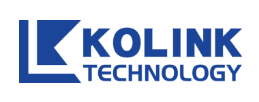1、ASE Group sells off four factories in China to fuel Taiwan expansion
Taiwan’s ASE Group announced Wednesday (Dec. 1) it will sell off four factories in China.
The company plans to invest the profits from the sale to expand its presence in its home market, according to a UDN report.
The four factories, located in Weihai, Kunshan, Suzhou, and Shanghai, will be sold to Beijing-based Wise Road Capital. The estimated total value of the sale will be US$1.46 billion , of which ASE expects to make US$630 million in profit.
The news comes after Taiwan Semiconductor Manufacturing Company (TSMC) announced plans to set up a new plant in Kaohsiung. The company has approved renting a plot of land in the city to build a fab for 7nm and 28nm processes starting next year.
Industry analysts have interpreted ASE’s move as an adjustment of its strategy to follow the reshoring trend as the semiconductor hub around Taiwan’s southern port city continues to grow.
2、Capacity and price increases drive 11.8% foundry growth in Q3
According to latest investigations TrendForce, foundry output reached US$27.28 billion in the 3Q21, up 11.8% QoQ, This result indicated nine consecutive quarters of revenue growth. TSMC's market share rose further to 53.1% from 52.9% in the second quarter, placing it firmly as the industry leader.
TSMC raised its quarterly revenue by 11.9 percent QoQ to $14.88 billion as it benefited from the release of new iPhone models. The foundry remained firmly at the top of the ranking in 3Q21. Regarding TSMC’s revenue generation by node, the combined revenue share of the 7nm and 5nm nodes has already surpassed 50 percent and is still expanding thanks to continued demand for smartphone chips and HPC chips.
Samsung ranked second with a revenue of US $4.81 billion, or even less than one-third of TSMC. Although there is an obvious gap with TSMC, it still ensures a quarterly increase of 11%.
It is worth mentioning that SMIC’s revenue in the third quarter reached US $1.42 billion, with a quarterly increase of 5.3%. It is not only on the list, but also in the top five of the list.
Moving into 4Q21, although foundries have undertaken various capacity expansions and greenfield projects, their new production capacity that has been activated this year is already completely booked. The new fabs that foundries have announced will need some time to get built and fully set up, so the chip shortage on the whole will unlikely ease off anytime soon.
3、Taiyo Yuden to build a new MLCC factory
Taiyo Yuden Co., Ltd. recently announced that it will build a new factory in its Changzhou factory in China, and start production of multilayer ceramic capacitors in 2023.
According to the announcement, the new plant will break ground in December 2021 and is scheduled to be completed in June 2023, with an estimated investment of about 17 billion yen. The new factory has a total construction area of approximately 80,000 square meters and a construction area of approximately 28,500 square meters.
Taiyo Yuden stated in the announcement that multilayer ceramic capacitors are electronic components for which demand is expected to grow. They are indispensable for the technical evolution of vehicles, such as the ongoing electrification and the use of electronic controls, as well as for communication infrastructures, such as servers and base station communication equipment, and for 5G smartphones. As a part of its growth strategy in the medium-term management plan 2025, the company will construct a factory on the premises of TAIYO YUDEN (CHANGZHOU) CO., LTD. to establish a production system that can respond to the expected increase in future demand.
4、Renault sees 'difficult' chip supply until at least mid-2022
Renault expects the supply of semiconductors to remain difficult until at least mid-2022, complicating the automaker's turnaround that includes overhauling its factory base.
Renault is prioritizing output of higher-margin cars and commercial vehicles as demand remains strong, according to CEO Luca de Meo.
"Renault has been forced in some cases to send someone to Asia to get the chips," de Meo said in an interview Tuesday at the Flins plant, where auto assembly is set to halt in a couple of years after almost seven decades. "It’s a mess."
According to reports, Renault's plant west of Paris, which makes the Zoe electric car and the Nissan Micra, will be transformed by 2024 to recycle rebuilt cars and batteries. the Flins plant is key to Renault's broader transformation, which includes job cuts, cost reductions and lower global capacity.
In a report released on Tuesday, Citi analysts noted that Renault has made substantial progress on its transformation plan, as well as reducing leverage and costs and boosting profitability. Mayo also reiterated Renault's forecast that it will reduce production by 500,000 vehicles this year, equivalent to nearly a fifth of last year's total, due to a lack of parts.
5、TSMC faces labor shortage for new Japan plant
Taiwan Semiconductor Manufacturing Co. (TSMC) is facing a shortage of labor in Japan for its new joint venture with Sony in Kumamoto, reports said Thursday (Nov. 2).
The US$7 billion project with Sony Semiconductor Solutions Corporation was scheduled to be built in 2022, with chip production to launch in 2024, the Taiwan media reported.
However, according to Japanese newspaper Nikkan Kogyo Shimbun, the recruitment drive for the factory was bound to overlap with new NAND Flash projects by former Toshiba unit Kioxia in central Japan and DRAM production plans by Micron Technology Inc. in Hiroshima.
In order to solve a similar shortage at its plant in Arizona, TSMC sent hundreds of technical experts from Taiwan to help out, Nikkan reported. The world’s largest contract chipmaker might take a similar approach for the Kumamoto project, if Japan’s current measures banning foreign visitors in order to prevent the COVID-19 Omicron variant from expanding do not last too long, or the plan might meet problems, according to the report.
6、US regulator sues to stop Nvidia’s acquisition of Arm
The Federal Trade Commission on Thursday(Nov. 2)sued to block US chipmaker Nvidia's proposed $40 billion takeover of UK chip design firm Arm, saying it would stifle competition and give the combined company too much control over chip technology and designs.
The lawsuit threatens to scuttle the world's biggest ever semiconductor merger, which had already been the subject of regulatory scrutiny abroad.
"Semiconductor chips power the computers and technologies that are essential to our modern economy and society," the FTC said in a statement. According to its complaint, "the combined firm would have the means and incentive to stifle innovative next-generation technologies, including those used to run datacenters and driver-assistance systems in cars."


